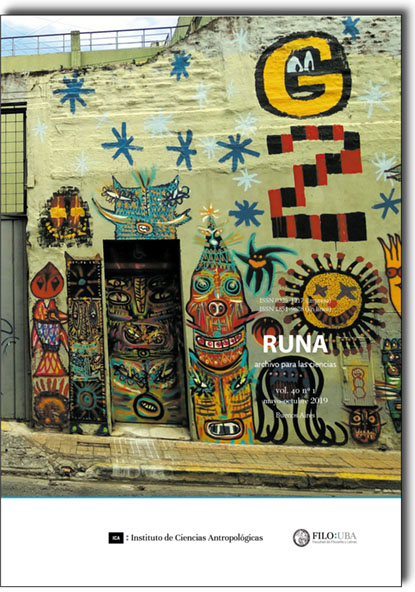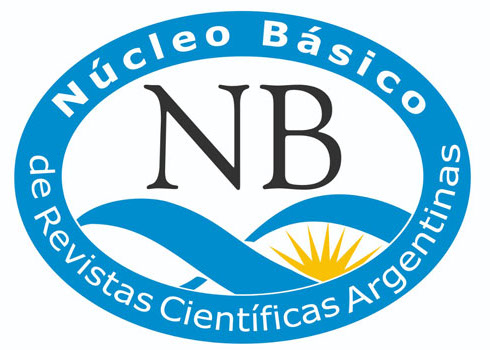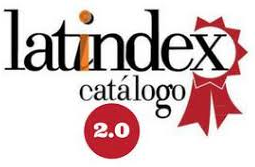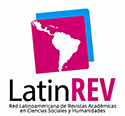The anthropological narrative. Notes about the role of the empirical in the ethnographic text
Abstract
Producing an ethnographic text implies -among other things- to skilfully solve the inscription of the empirical record in the text. This paper is an attempt to emphasize this connection, probing that ethnography and narrative are co-implicated terms. It is also an effort to demythologize the incompetence of narrativity in the development of our profession and to advocate for an academic writing that could reposition the empirical and analytical experience in the centre of the anthropological project.Downloads
References
Beatty, A. (2010). How did it feel yor fou? Emotion, narrative and the limits of ethnography, American Anthropologist, 112(3), 430-443.
Belcher, W-L. (2010). Cómo escribir un artículo académico en 12 semanas. Guía para publicar con éxito. México: Flacso.
Briggs, J. (1970). Never in anger. Portrait of an Eskimo family. Cambridge: Harvard University Press.
Briggs, J. (2000). Emotions have many faces: Inuit lessons. Anthropologica, 42(2), 161-162.
Caimari, L. (2017). La vida en el archivo. Goces, tedios y desvíos en el oficio de la historia. Buenos Aires: Siglo XXI.
Cardoso de Oliveira, R. (2000). O Trabalho do antropólogo. Brasilia: São Paulo Editora UNESP.
Daich, D. y Varela, C. (2018). Antropólogas feministas en las intrincadas aldeas del sexo comercial. En K. Tinat y R. Parrini (Comps.). Etnografías de la sexualidad en América Latina (en prensa). México: El Colegio de México.
Díaz Viana, L. (1991). Prólogo a la edición española. En J. Clifford y G. Marcus (Eds.). Retóricas de la Antropología (s.p.). Madrid: Júcar Universidad.
Firth, R. (1989). Second introduction 1988. En A diary in the strict sense of the term (pp. xxi-xxi). Stanford: Stanford University Press.
Geertz, C. (1986). La interpretación de las culturas. Barcelona: Gedisa.
Geertz, C. (1994). Conocimiento local. Ensayos sobre la interpretación de las culturas. Buenos Aires: Paidós.
Guber, R. (2017). Conocimiento antropológico, trabajo de campo y patetismo editorial. Cuestión de escala y de tiempo. Recuperado de https://www.wcaanet.org/publications/propios_terminos/guber.shtml
Gussow, Z. (1972). Never in Anger. Review. American Anthropologist, 74(4), 871-872.
Jablonka, I. (2015). Historia de los abuelos que no tuve. Buenos Aires: Libros del Zorzal.
Jablonka, I. (2016). La historia es una literatura contemporánea. Manifiesto por las ciencias sociales. Buenos Aires: Fondo de Cultura Económica.
Lorenz, F. (2014). Los zapatos que calzamos. De la novela como revancha del historiador. Anuario Digital, 26, 29-45.
Marcus, G. (1991). Epílogo: la escritura etnográfica y la carrera antropológica. En J. Clifford J. y G. Marcus (Eds.). Retóricas de la Antropología (s.p.). Madrid: Júcar Universidad.
McGranahan, C. (2014). What is Ethnography? Teaching Ethnographic Sensibilities without Fieldwork, Teaching Anthropology, 4, 23- 36.
Myerhoff, B. (1980). Number our days. Nueva York: First Touchstone Edition.
Quirós, J. (2014). Etnografiar mundos vívidos. Desafíos de trabajo de campo, escritura y enseñanza en Antropología, Publicar, XII(XVII), 47-65.
Reynoso, C. (Comp.). (1991). El surgimiento de la Antropología posmoderna. México: Gedisa.
Rosaldo, R. (2011). La narrativa en la etnografía: el imaginario asimétrico, el punto de vista y la desigualdad. En A. Grimson, S. Merenson y G. Noel (Comps.). Antropología ahora. Debates sobre la alteridad (pp. 61-68). Buenos Aires: Siglo XXI.
Sharman, R. L. (2007). Style matters: ethnography as method and genre. Anthropology and Humanism, 32(2), 117-129.
Sirimarco, M. (2016). El último Chonino. Crónica de una investigación sobre policía y heroísmo. Buenos Aires: Antropofagia.
Sirimarco, M. y Spivak L´Hoste, A. (2018). Introducción: la emoción como herramienta analítica en la investigación antropológica. Etnografías Contemporáneas, 4(7), 7-15.
Tedlock, B. (1991). From participant observation to the observation of participation: the emergence of narrative ethnography. Journal of Anthropological Research, 47(1), 69-94.

Runa, archivos para las ciencias is a publication of the Instituto de Ciencias Antropológicas, Facultad de Filosofía y Letras, Universidad de Buenos Aires and is distributed under a Creative Commons Attribution 4.0 International License.
Runa maintains its commitment to the policies of Open Access to scientific information, considering that both scientific publications and publicly funded research should circulate on the Internet freely, free of charge and without restrictions.
The contents and opinions expressed in published articles are the sole responsibility of their authors.



















